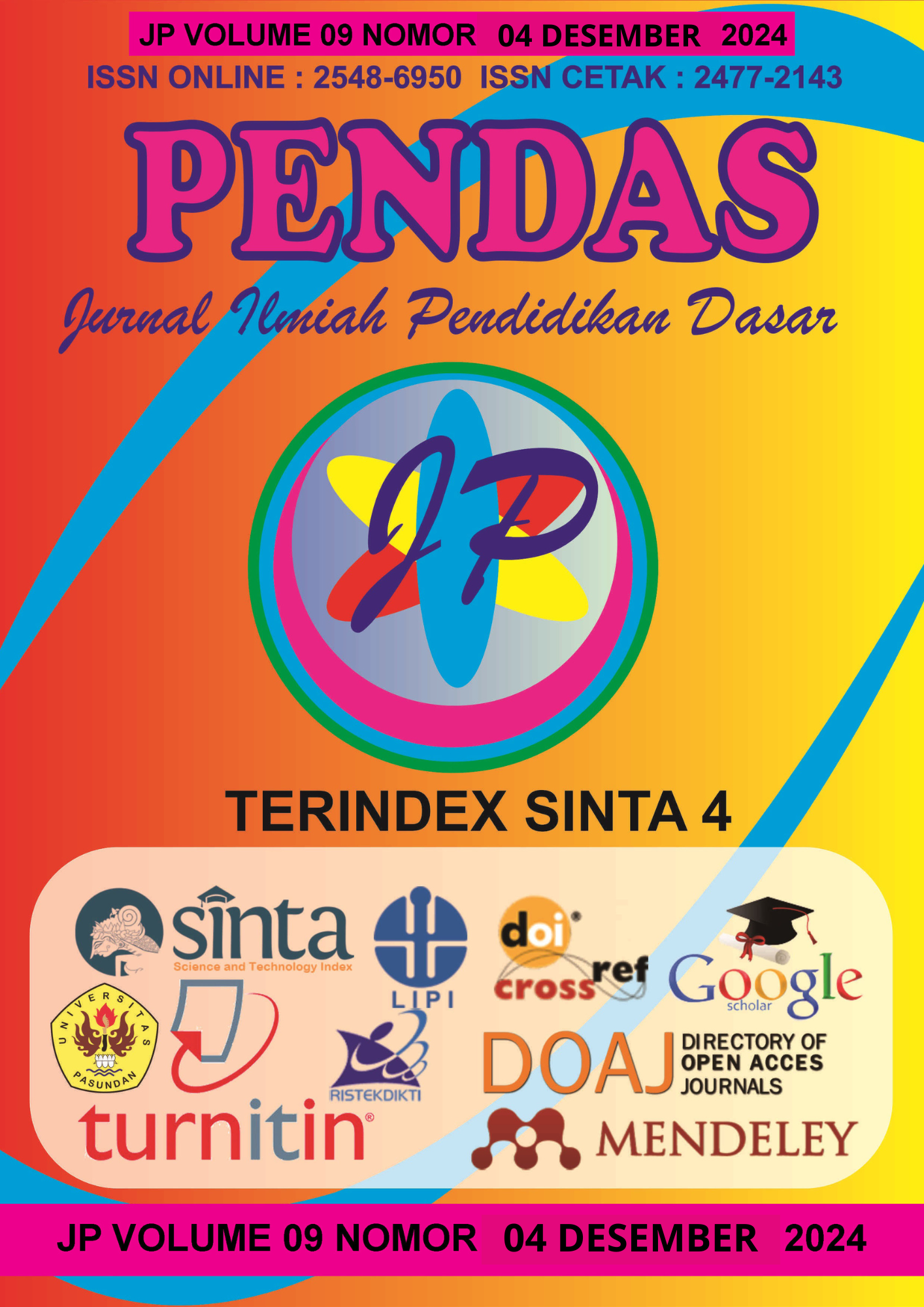MODEL PENDIDIKAN KARAKTER DENGAN PROJEK PENGUATAN PROFIL PELAJAR PANCASILA PADA PENDIDIKAN ANAK USIA DINI INKLUSIF DI SEKOLAH ALAM RAMADHANI
DOI:
https://doi.org/10.23969/jp.v9i04.22173Keywords:
Character Education Model, P5, Inclusive PAUDAbstract
Abstract
This research is motivated by the phenomenon of demoralization of the nation's generation which occurs due to the low level of moral understanding that has not been obtained since early childhood and the decreasing intensity of Pancasila values in PAUD institutions. This study aims to determine the implementation of the character education model in inclusive PAUD at Alam Ramadhani School. The research method uses a qualitative research approach with a single case study. Data collection techniques using observation and structured interviews. The results of the research show that the implementation of the inclusive PAUD character education model at Alam Ramadhani School is oriented towards strengthening the profile of Pancasila students (P5) including six dimensions, namely religious values, diversity, mutual cooperation, independence, creativity and innovation with learning activities referring to project-based activities starting from from introduction, contextualization, planning, action and reflection aimed at capacity building for early childhood. Where in practice P5 activities use nature as a medium and learning resource by directly involving all students including ABK.
Keywords: Character Education Model, P5, Inclusive PAUD
Downloads
References
Aulia, L. R., Kholisoh, N., Rahma, V. Z., Rostika, D., & Sudarmansyah, R. (2024). Pentingnya Pendidikan Empati Untuk Mengurangi Kasus Bullying Di Sekolah Dasar. Morfologi: Jurnal Ilmu Pendidikan, Bahasa, Sastra Dan Budaya, 2(1), 71–79. https://doi.org/10.61132/morfologi.v2i1.291
Iswantiningtyas, V., & Wulansari, W. (2018). Pentingnya Penilaian Pendidikan Karakter Anak Usia Dini. Proceedings of The ICECRS, 1(3), 197–204. https://doi.org/10.21070/picecrs.v1i3.1396
Julaeha, S., & Erihadiana, M. (2021). Model Pembelajaran dan Implementasi Pendidikan HAM Dalam Perspektif Pendidikan Islam dan Nasional. Reslaj : Religion Education Social Laa Roiba Journal, 3(3), 133–144. https://doi.org/10.47467/reslaj.v4i2.449
Musolin, M., & Nisa’, K. (2021). Pendidikan Masa Pandemik Covid 19: Implementasi Konsep Tri Pusat Pendidikan Ki Hajar Dewantara. Edukatif : Jurnal Ilmu Pendidikan, 3(6), 4134–4144. https://doi.org/10.31004/edukatif.v3i6.1316
Poltak, H., & Widjaja, R. R. (2024). Pendekatan Metode Studi Kasus dalam Riset Kualitatif. Local Engineering, 2(1), 31–34. https://doi.org/10.59810/lejlace.v2i1.89
Revalina, A., Moeis, I., & Indrawadi, J. (2023). Degradasi Moral Siswa Dalam Penerapan Nilai-Nilai Pancasila Ditinjau Dari Makna Dan Haikat Pendidikan Kewarganegaraan Sebagai Pendidikan Karakter. Jurnal Pendidikan Karakter, 14(1), 53–62. https://doi.org/10.21831/jpka.v14i1.57131
Santrock, J. W. (2002). Life-Span Development “Perkembangan Masa Hidup” (H. Sinaga & Y. Sumiharti (eds.); Jilid 1). PT Gelora Aksara Pratama.
Suharlii. (2015). Teori Belajar Dan Model Penerapannya Dalam Pembelajaran. Pengemabangan Model Pembelajaran IPS, 1(1), 1–13. file:///D:/Downloads/teori dan model pemelajaran.pdf
Tabrani, Afendi, A., Baitullah, Zamzami, & Maspan. (2024). Model-Model Pembelajaran. Jurnal Review Pendidikan Dan Pengajaran, 7(4), 14713–14720. https://doi.org/https://doi.org/10.31004/jrpp.v7i4.35868
Downloads
Published
Issue
Section
License
Copyright (c) 2025 Pendas : Jurnal Ilmiah Pendidikan Dasar

This work is licensed under a Creative Commons Attribution 4.0 International License.














































